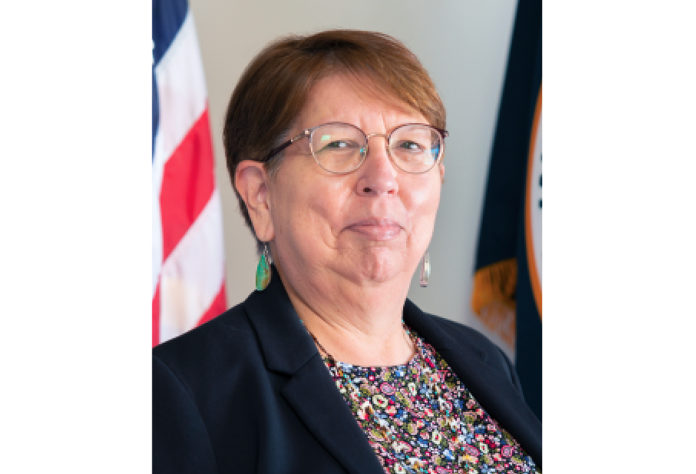ALBUQUERQUE, NM – Tamarah Pfeiffer, Ph.D., a member of the Navajo Nation, has been appointed President of Southwestern Indian Polytechnic Institute (SIPI). SIPI is a post-secondary institution operated by the Bureau of Indian Education (BIE) and located in Albuquerque, NM. The community college offers programs ranging from liberal arts to pre-engineering.
“Dr. Pfeiffer has been inspiring Indigenous students for more than 40 years,” said Bureau of Indian Education Director Tony L. Dearman. “She most recently served as BIE’s Chief Academic Officer and has a phenomenal reputation in Indian education. Her experience will cultivate a college environment that will create culturally diverse learning opportunities for Indigenous students.”
During her career at BIE, Pfeiffer served as Acting President at Haskell Indian Nations University, BIE Chief Academic Officer, and Associate Deputy Director for Navajo Schools. Before joining BIE, Pfeiffer held positions at Arizona State University, Penn State, Dine College, and Northern Arizona State University.
“My primary focus will be to build upon the college’s strengths from the perspective of a growth mindset,” said Pfeiffer. “We must prioritize SIPI’s partnerships with surrounding tribal communities, colleges, and universities, both public and private, so we can seamlessly transition SIPI students to four-year studies. I want to create an environment where SIPI is a springboard for every student to launch into a successful and prosperous career that will contribute back to their communities. To accomplish that, we must thoroughly prepare our students for a four-year degree and a career of highly skilled employment.”
“The SIPI mission statement entrusts us with the duty of preparing our culturally diverse Native American students as life-long learners through partnerships with tribes, employers and other organizations,” said Pfeiffer. “I will work tirelessly to ensure our mission statement becomes a reality for each SIPI student. I am honored and excited to work with the exceptional faculty, staff, students, and every tribal stakeholder at SIPI. Moving forward together, we will serve and build our tribal communities in a way that will make future generations proud of the work we have done.”















































